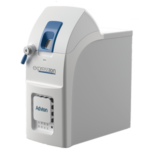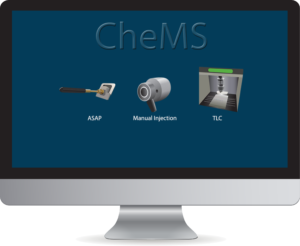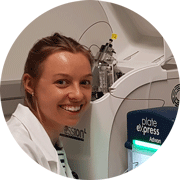Q: WHAT IS THE FOCUS OF YOUR LAB’S RESEARCH?
We are the Institute for Therapeutics Discovery & Development. One of our main research core’s goals is the synthesis of biologically active small molecules with the additional goal of training the next generation of scientists through the Department of Medicinal Chemistry’s graduate student program. Our projects focus areas include contraception, cancer, infectious disease, and Alzheimer’s.
Q: WHAT WAS YOUR PREVIOUS WORKFLOW OR CHALLENGES?
A major headache for any synthetic chemist is the identification of the desired product when a mixture is obtained from a reaction. In the past, we would typically run a flash chromatography column, isolate spots of potential interest, concentrate them, and take 1H NMR, sometimes having to go back to column fractions as many as 4 times to analyze new spots if the first wasn’t desired product.
Q: WHY DID YOU INCORPORATE THE expression® CMS INTO YOUR LABORATORY?
Advion’s TLC–CMS system has streamlined our purification and analytical process significantly. What once took several hours to days to complete, we can now accomplish in as a little as 60 seconds. The Data Express software is also very easy to work with and has been quite useful in identifying adducts of our compounds.
Q: WHO WOULD YOU RECOMMEND TO PURCHASE THE expression® CMS?
We have been extremely happy with our Advion system and predict that it will quickly become a workhorse in any synthetic organic or medicinal chemistry laboratory.


 Bring mass spectrometry into your classroom for remote or on-site learning with a training course for the expression® Compact Mass Spectrometer (CMS).
Bring mass spectrometry into your classroom for remote or on-site learning with a training course for the expression® Compact Mass Spectrometer (CMS).



